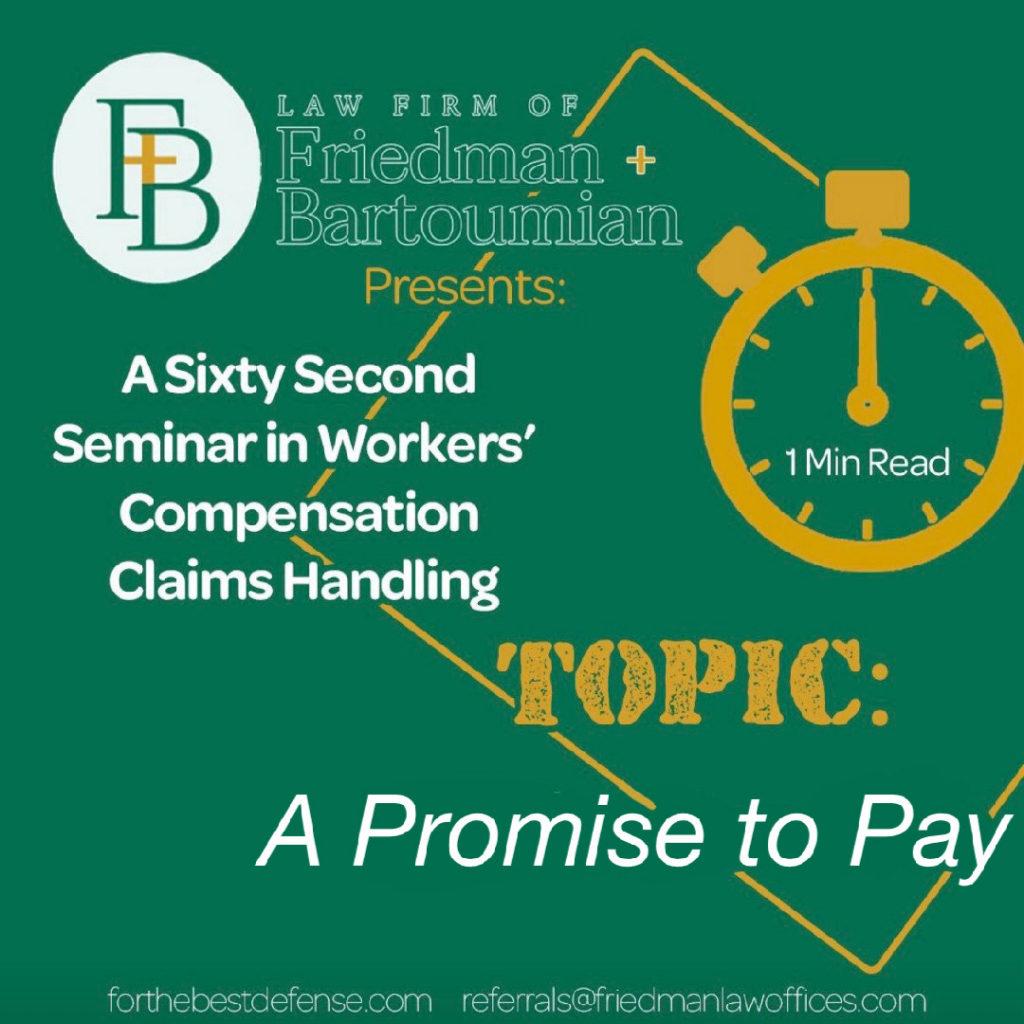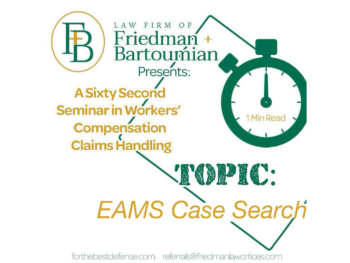
We will begin today’s blog with a question. “Is it possible for someone to be declared a dependent in a death claim based solely on a decedent’s promise to provide financial support?” In other words, “Is a financial promise sufficient to allow successful presentation of a dependency death claim under workers’ compensation?”
First, let’s discuss the two different types of promises to pay.
- Legal Obligation: This exists when a legal obligation to provide support exists, which may be memorialized by judicial action, such as a child support order or alimony decree.
- Voluntary Obligation: This exists when a legal obligation does not exist but instead, there is only a voluntary promise to provide support.
In today’s blog we will discuss how both scenarios are viewed by the WCAB. We find this to be timely because the other day we observed how an applicant attorney filed a death claim on behalf of an alleged dependent based on an outstanding, unpaid 35-year-old child support order. The child was now an adult, married, and living in another state with adult children of her own. Except for a 35-year-old child support order, no other elements of dependency existed, and credit should be given to Counsel for raising an interesting argument.
Surprisingly, a review of case law identified a 2016 WCAB decision wherein the WCAB ruled that an old child support order or a promise to pay, whether memorialized or not, is not enforceable in a death dependency claim unless in the year preceding the death the decedent made an actual payment or demonstrated an attempt to begin payment. However, if no actual or planned payment occurred over the past year, then the pursuit of death benefits is nothing more than an attempt to convert a debt into a death claim and insufficient to establish entitlement.
The information provided in this blog may be useful to an employer should a fatality claim be filed where no dependents exist. As most claims professionals are aware, pursuant to LC §4706.5(a) the state’s Death Without Dependents (DWD) Unit is entitled to receive a $250,000 death benefit when there are no dependents. However, if a full or partial dependent exists, then DWD unit receives absolutely nothing. Therefore, it would behoove an employer to investigate old, unpaid child support orders to determine if any payments or plans for payment have been made over the past year preceding death. By way of example, suppose only $100 in arrear child support was paid over the past year, that recipient would be declared a partial-dependent, entitled to a $800 aggregate work comp death benefit, while the DWD would get nothing. The employer just saved $249,200! No doubt it is worthwhile to investigate in every case involving the DWD.
Here at Friedman + Bartoumian we are always on the look-out for ways to help our clients avoid unnecessary expenditures. That’s our purpose! Reach out to us!


 GAF Scores: A 60-Second Seminar in Workers’ Compensation Claims Handling
GAF Scores: A 60-Second Seminar in Workers’ Compensation Claims Handling
Leave a Reply